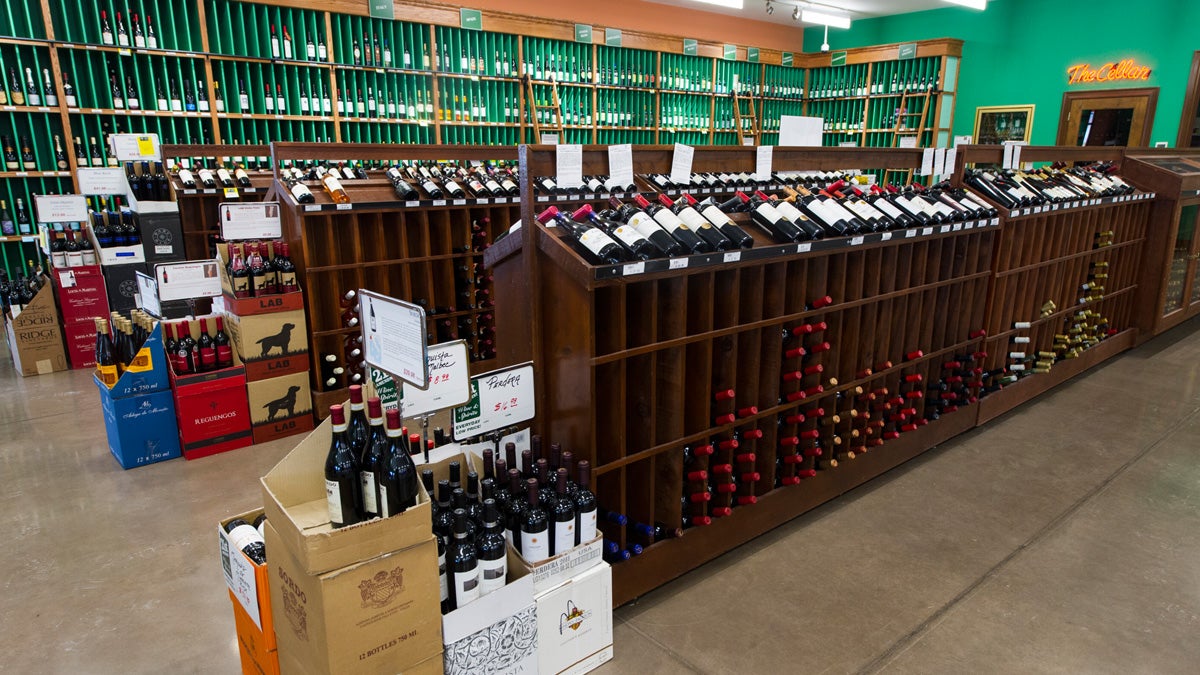Pennsylvania legislative changes may impact Delaware liquor sales

(AP Photo/Doug McSchooler)
Will “border bleed” into Delaware continue if Pennsylvania changes liquor laws?
Here is Doug Rainey’s commentary:
You head out to pick out some items for dinner, including a bottle of wine.
The problem is that the liquor store is at another shopping center and that 30-minute trip turns into an hour-long trek. Or you decide to visit the more expensive super market that just so happens to have a liquor store next door.
Welcome to the Delaware alcohol beverage system, which should carry the tagline, “it could be worse, you could be in Pennsylvania.”
The Pennsylvania system produces something called “border bleed”, or the practice of Commonwealth residents heading south of the border for cheaper beer, wine and liquor without the hassle of stopping at two stores.
The phenomenon is best viewed from Claymont, where Tri-State Liquors and Total Wine and More operate massive liquor stores. Each big box contains more than 20,000 square feet
During busy holiday periods, parking spaces near the buildings can be hard to find. Pennsylvania tags can dominate the scene, buyers flock to the stores, even at the risk of being subject to sporadic enforcement efforts.
But more competition is likely to come from the Keystone State as regulators tweak a system that combines high taxes, state-owned wine and spirits stores, and beer distributors that sell only large quantities.
The Commonwealth came close to privatizing the liquor store system in the last legislative session. But with a new governor opposed to privatization, Pennsylvania seems likely to hold on to state liquor stores, at least in the short term.
Even with the gridlock in Harrisburg, regulators, liquor store management and court decisions have given the system some breathing room.
A recent move that beer distributors described as the biggest change in decades came when stores were allowed to sell 12 and 18 packs, rather than a case of 24 or a keg. The term “distributor” refers to a retail store, rather than a wholesaler.
Believed to have been a factor was the boom in more expensive craft beer. The price of a case of craft beer can easily top $45 or more. By contrast, a Pennsylvanian can buy craft brews in Delaware by the six pack and even mix or match his or her selections.
Another loophole is that Pennsylvania allows six packs to be sold at restaurants. That has allowed larger grocers, like Wegmans, to sell beer.
Along the way, the liquor store system has gone upscale at some stores with a “Chairman’s Selection” of fine wine. Monthly specials on popular brands of wine and spirits are also offered. At times, prices come close to those charged in Delaware.
Meanwhile pressure to loosen the system comes from operators like Sheetz, a large Pennsylvania-based convenience store chain that has pushed hard for a relaxation of beer and wine regulations.
So what does this mean for Delaware?
In the short term, little will change.
The last big development came in the early 2000s when the ban on Sunday sales ended. Opposed to the move were mom and pop liquor stores that had to add staff for seven-day-a-week operation.
Since the Sunday hours went into effect, the size of the average liquor outlet has increased, with fewer one-person corner stores. Fewer locations are often welcomed by public health officials and law enforcement, who point to higher crime rates, DUIs and other problems in areas with a heavy presence of stores.
Meanwhile, a long-running effort to allow wine to be shipped to Delaware home addresses has encountered stiff opposition from distributors and their unionized workforce, despite a lack of evidence that the move would damage local sales.
The current system in Delaware also rules out large chains, with owners limited to two stores.
An effort in 2009 by State Rep. John Viola, D-Bear, to allow sales in supermarkets went nowhere. A big incentive for the legislation at the time, was a budget gap that could have been partially plugged by upfront fees grocers would have paid.
Over the years, many have risen to the defense of the current system, praising the personal relationships many have with owners and staffs and expressing a disdain for the big boxes.
Arguments range from support for the mom and pop owners to possible problems with age verification at supermarkets.
The Delaware system, like its Pennsylvania counterpart, has bowed to the times. It allowed big box membership stores, like Sam’s, BJ’s and Costco to have liquor stores, as long as the space is separated by a wall and a separate entrance.
The state has also been supportive when it comes to craft beer. It now allows “growlers,” large beer containers that can be poured from the keg and taken home from the store or brewpub.
But with the state continuing to see sluggish revenue growth, it is possible that a version of Viola’s proposal could emerge, perhaps coupled with an increase in alcoholic beverage taxes.
The danger would be that a more flexible Pennsylvania system, coupled with higher Delaware taxes, could sharply reduce the windfall from that lucrative “border bleed.”
WHYY is your source for fact-based, in-depth journalism and information. As a nonprofit organization, we rely on financial support from readers like you. Please give today.




